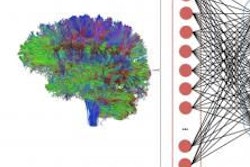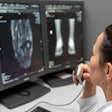Dear Artificial Intelligence Insider,
It can be challenging and time-consuming for radiologists to grade spinal stenosis on lumbar spine MRI exams. Artificial intelligence (AI) may be able to help, however.
Researchers from Massachusetts General Hospital and Brigham and Women's Hospital have developed a deep-learning algorithm called DeepSpine that can accurately perform vertebral segmentation, disk-level labeling, and level-by-level spinal stenosis grading. You can read all about it in this issue's Insider Exclusive, which you can access before our regular members can.
An AI algorithm can be helpful in the interpretation of routine chest x-rays and in looking for changes on serial studies. But does it perform well enough to handle the radiologist's role in reading these exams? Click here to find out.
Speaking of AI and chest radiographs, an algorithm was able to improve the performance of nonradiology physicians and even thoracic radiologists for detecting malignant pulmonary nodules. Click here to get all of the details.
In other AI news, a deep-learning model was found to predict surgical outcomes accurately in patients with mesial temporal lobe epilepsy. Click here to learn more.
Using MRI and clinical data, AI outperformed clinical experts at predicting social functioning in people at high risk of psychosis or with depression. These predictions could then be used to provide individualized therapy for patients, according to the multinational team of researchers. Click here to access our report.
Additionally, AI can analyze information on structural and diffusion MRI to predict if a patient will develop Alzheimer's disease. How did the researchers achieve their results? Click here for more information.
European researchers also found that AI and 7-tesla functional MRI scans could be used to determine how the brain connects with a person's memory and past experiences to solve daily problems. Click here for our coverage.
AI won't replace radiologists over the next decade, but it will likely spark big changes in PACS software, according to Dr. Eliot Siegel of the University of Maryland. What will those changes be? Click here for our story.
Also, an AI algorithm can produce synthetic brain MR images, solving a number of challenges in training AI algorithms.
Is there a story you'd like to see covered in the Artificial Intelligence Community? Please feel free to drop me a line.




















